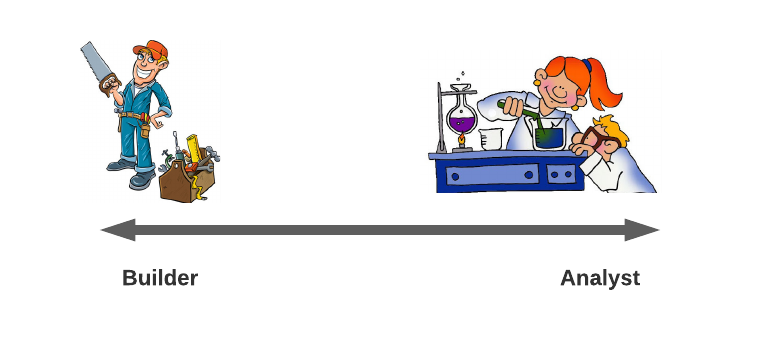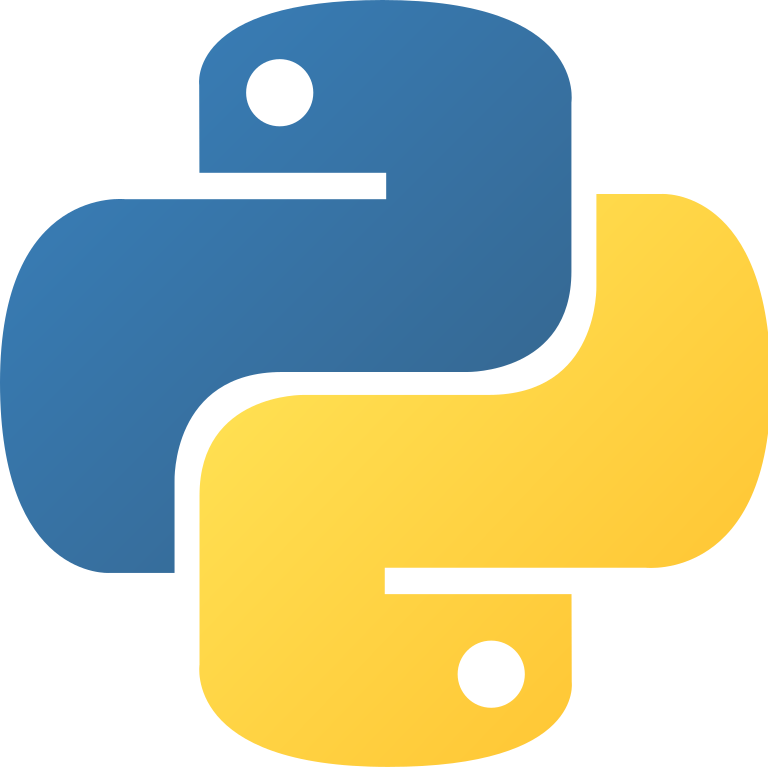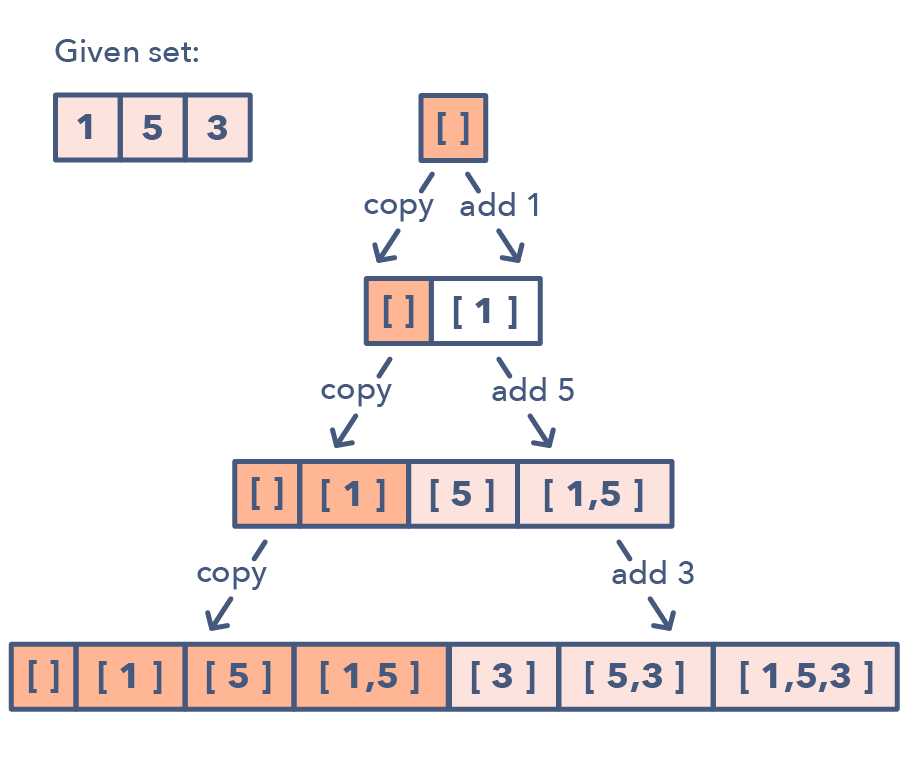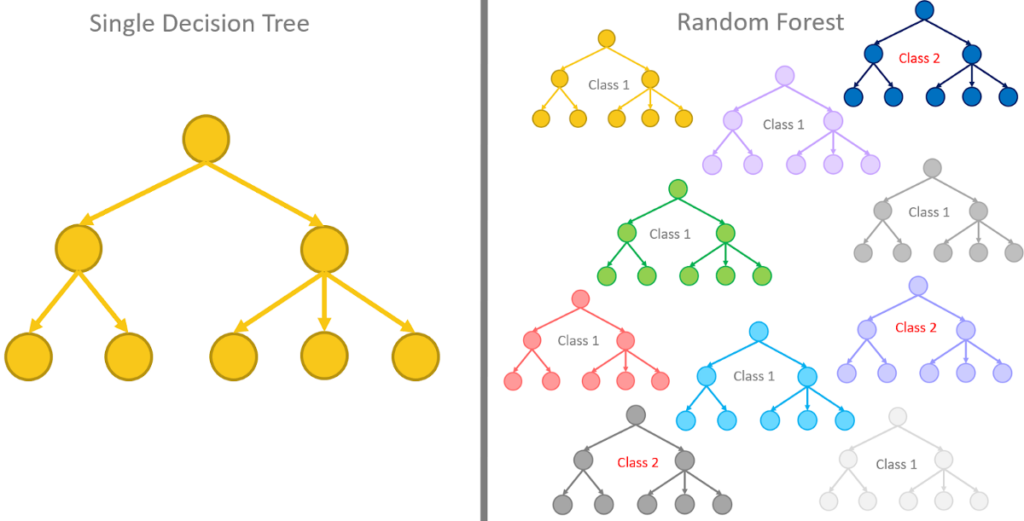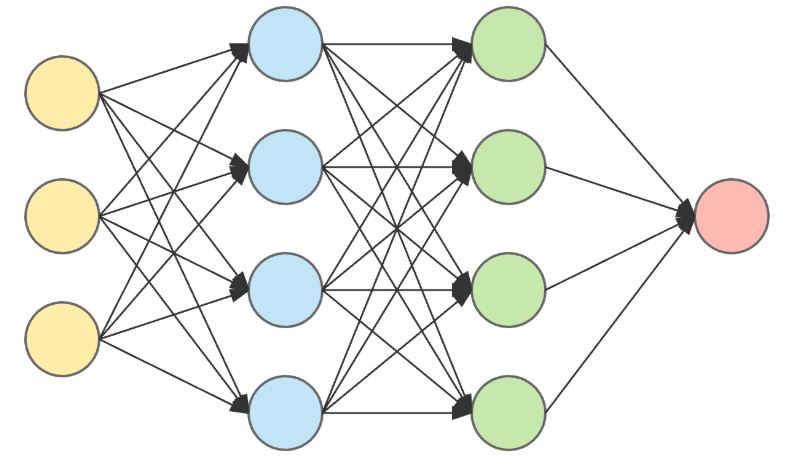For the past two years, I’ve been mentoring aspiring data scientists through Springboard’s Data Science Career Track Prep course. I myself graduated from Springboard’s Career Track program back in 2017, so I know firsthand how intimidating it can be to try and rebrand yourself as a data scientist without a traditional degree.
I’ve noticed my mentees often have the same questions as their peers concerning the data science industry and the bootcamp track they’ve chosen. I’m compiling a list of these FAQ’s for all aspiring data scientists who are considering a bootcamp or just want my take on breaking into this field.
What advice do you have about searching for my first job?
I highly recommend that your first job as a data scientist (or data analyst) is at an organization large enough to already have a data team in place. You’ll need a mentor—either informally attached or formally assigned—in those first few years, and that sexy itty-bitty start-up you found on AngelList isn’t going to provide that to you.
I also advise that you read the job descriptions very closely. The title of “data scientist” can carry some prestige so companies will slap it on roles that aren’t actually responsible for any real data science.
Even if you think the job description outlines the kind of role you’re interested in, ask lots of probing questions in the interview around the day-to-day responsibilities of the job and the structure of the team. You need to understand what you’re agreeing to.
Some suggested questions:
- What do you expect someone in this role to achieve in the first 30 days? The first 90?
- What attributes do you think are necessary for someone to be successful in this role?
- How do you measure this role’s impact on the organization?
- How large is the team and what is the seniority level of the team members?
- Is your codebase in R or Python?
Don’t be afraid to really dig deep in these conversations. Companies appreciate candidates who ask thoughtful questions about the role, and demonstrating that you’re a results-oriented go-getter will separate you from the pack.
What’s the work/life balance like for data scientists?
I think I can speak for most data scientists here when I say work/life balance is pretty good. Of course, situations can vary.
But I believe data scientists occupy a sweet spot in the tech industry for two reasons:
- We don’t usually own production code. This means that, unlike software engineers, we aren’t on call to fix an issue at 2 am.
- Our projects tend to be long-term and more research-oriented so stakeholders typically don’t expect results within a few days. There are definitely exceptions to this but at the very least, working on a tight deadline is not the norm.
That being said, occasionally I do work on the weekends due to a long-running data munging job or model training. But those decisions are entirely my own, and overall I think the data scientist role is pretty cushy.
Besides Python, what skills should I focus on acquiring?
Contrary to what a lot of the internet would have you believe, I really don’t think there’s a standard skillset for data scientists outside of basic programming and statistics.
In reality, data scientists exist along a spectrum.
On one end, you’ve got the Builders. These kinds of data scientists have strong coding skills and add value to an organization by creating or standardizing data pipelines, building in-house analytical tools, and/or ensuring reproducibility of projects through good software engineering principles. I associate with this end of the spectrum.
On the other end, we have the Analysts. These data scientists have a firm grasp of advanced statistical methods or other mathematical subjects. They spend most of their time exploring complex feature creation techniques such as signal processing, analyzing the results of A/B experiments, and applying the latest cutting-edge algorithms to a company’s data. They usually have an advanced degree.
It is very rare to find someone to truly excels at both ends of the spectrum. Early on in your career, you might be a generalist without especially strong skills on either end. But as you progress, I’d recommend specializing on one end or the other. This kind of differentiating factor is important to build your personal brand as a data scientist.
Don’t I need a PhD to become a data scientist?
It depends.
If your dream is to devise algorithms that guide self-driving cars, then yes, you’ll need a PhD. On the other hand, if you’re just excited about data in general and impacting organizations through predictive analytics, then an advanced degree is not necessary.
Sure, a quick scroll on LinkedIn will show a lot of data scientist job postings that claim to require at least a master’s degree. But there are still plenty of companies that are open to candidates with only a bachelor’s degree. Just keep searching. Or better yet, mine your network for a referral. This is hands-down the best way to land a job.
Another route is to get your foot in the door through a data analyst position. These roles rarely require an advanced degree but you’ll often work closely with data scientists and gain valuable experience on a data team.
Many companies will also assign smaller data science tasks to analysts as a way to free up data scientists’ time to work on long-term projects. Leverage your time as an analyst to then apply for a data scientist role.
I’m considering applying for a master’s program instead of going through the bootcamp program. What do you suggest?
I’m hesitant about data science master’s programs.
When you commit to a master’s degree, you’re delaying your entry into the job market by two years. The field of data science is changing so rapidly that two years is a long time. The skills hiring managers are looking for and the tools data teams use may have shifted significantly in that time.
My personal opinion is that the best way to optimize your learning curve is to gather as much real-world experience as possible. That means getting a job in the data field ASAP.
Additionally, the democratization of education over the past decade now means that high-quality classes are available online for a tiny fraction of the price traditional universities charge their students. I’m a huge fan of platforms like Coursera and MIT OCW. My suggested courses from these sites can be found here.
At the end of the day, companies are just relying on these fancy degrees as a proxy for your competence to do the job. If you can show that competence in other ways, through job experience or a project portfolio, shelling out tens of thousands of dollars and multiple years of your life is not necessary.
I’m planning on working full-time while enrolled in the bootcamp program. Do you think that’s doable?
Yes.
But it will require discipline and long unbroken stretches of time. You won’t be able to make any meaningful progress if you’re only carving out time to work on the bootcamp from 5-6 pm every weeknight. Your time will be much better spent if you can set aside an entire afternoon (or better yet, an entire weekend) to truly engage with the material.
Committing to the bootcamp requires a re-prioritization of your life. As Henry Ford said, “if you always do what you’ve always done, you’ll always get what you’ve always got.”
What advice do you have about the capstone projects?
Find data first.
I recommend Google’s dataset search engine or AWS’s open data registry. Municipal governments also do a surprisingly good job of uploading and updating data on topics ranging from employee salaries to pothole complaints.
Once you’ve found an interesting dataset, then you can start to formulate a project idea. For example, if you have salary data for municipal employees, you could analyze how those salaries vary by a city’s political affiliation. Are employees in Democratic-controlled areas paid more than Republican-controlled or vis versa? What other correlations could affect this relationship?
Once you understand those interactions, you could train a machine learning model to predict salary based on a variety of input, from years of experience to population density.
It is much harder to start with an idea and then scour the internet trying to find the perfect publicly available dataset. Make your life easier, and find the data first.
Closing
All that being said, the most important piece of advice I can give is to have fun.
You’re making this career change for a reason, and if you’re not enjoying the learning process, then you might be on the wrong path. Becoming a data scientist is not about the money or the prestige—it’s about the delight of solving puzzles, the joy of discovering patterns, the gratification of making a measurable impact. I sincerely hope that you find your career in data as satisfying as I’ve found mine so far.
So buckle up and enjoy the ride!

